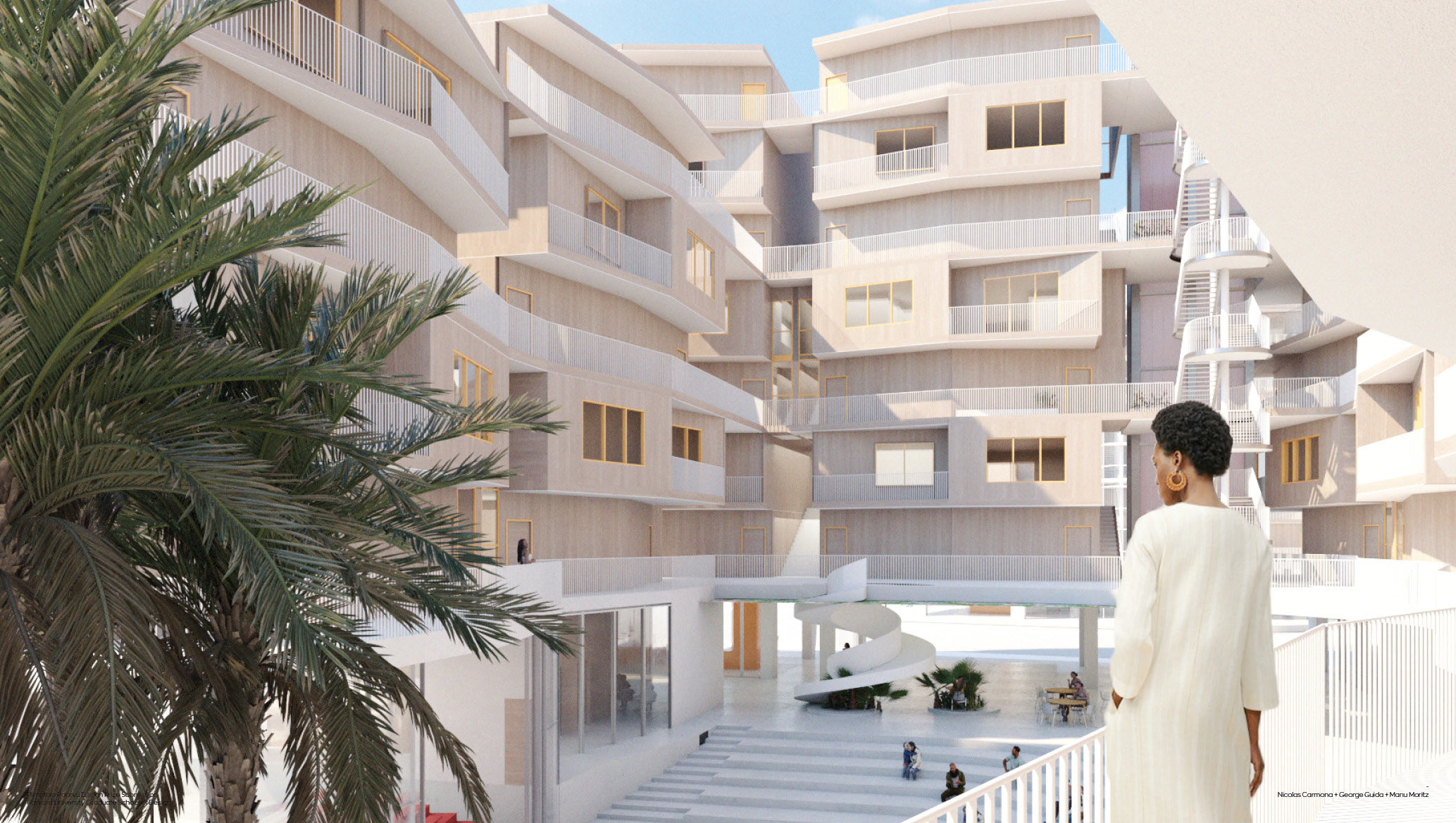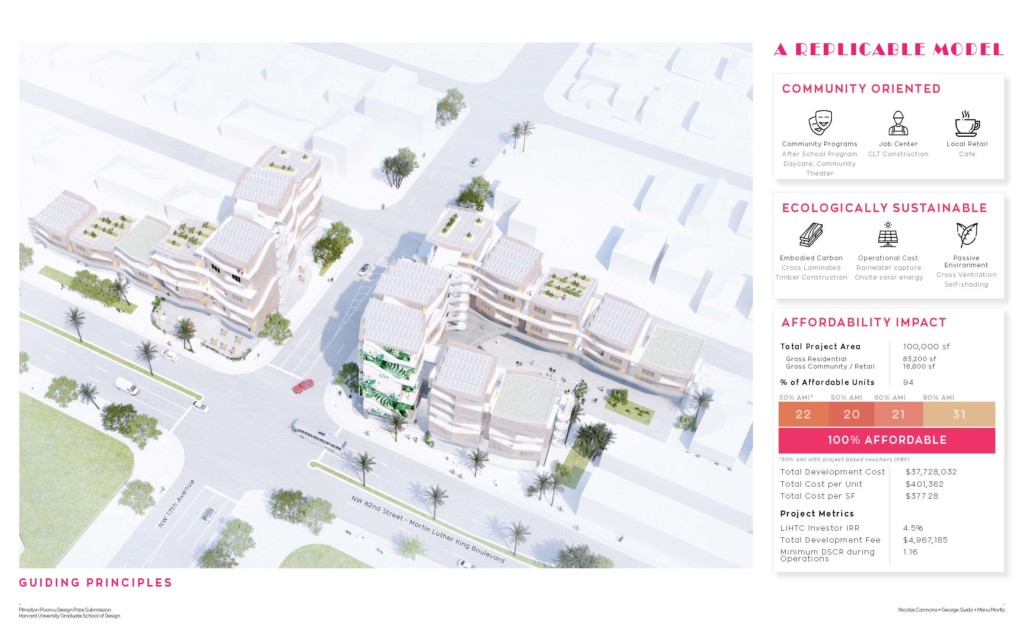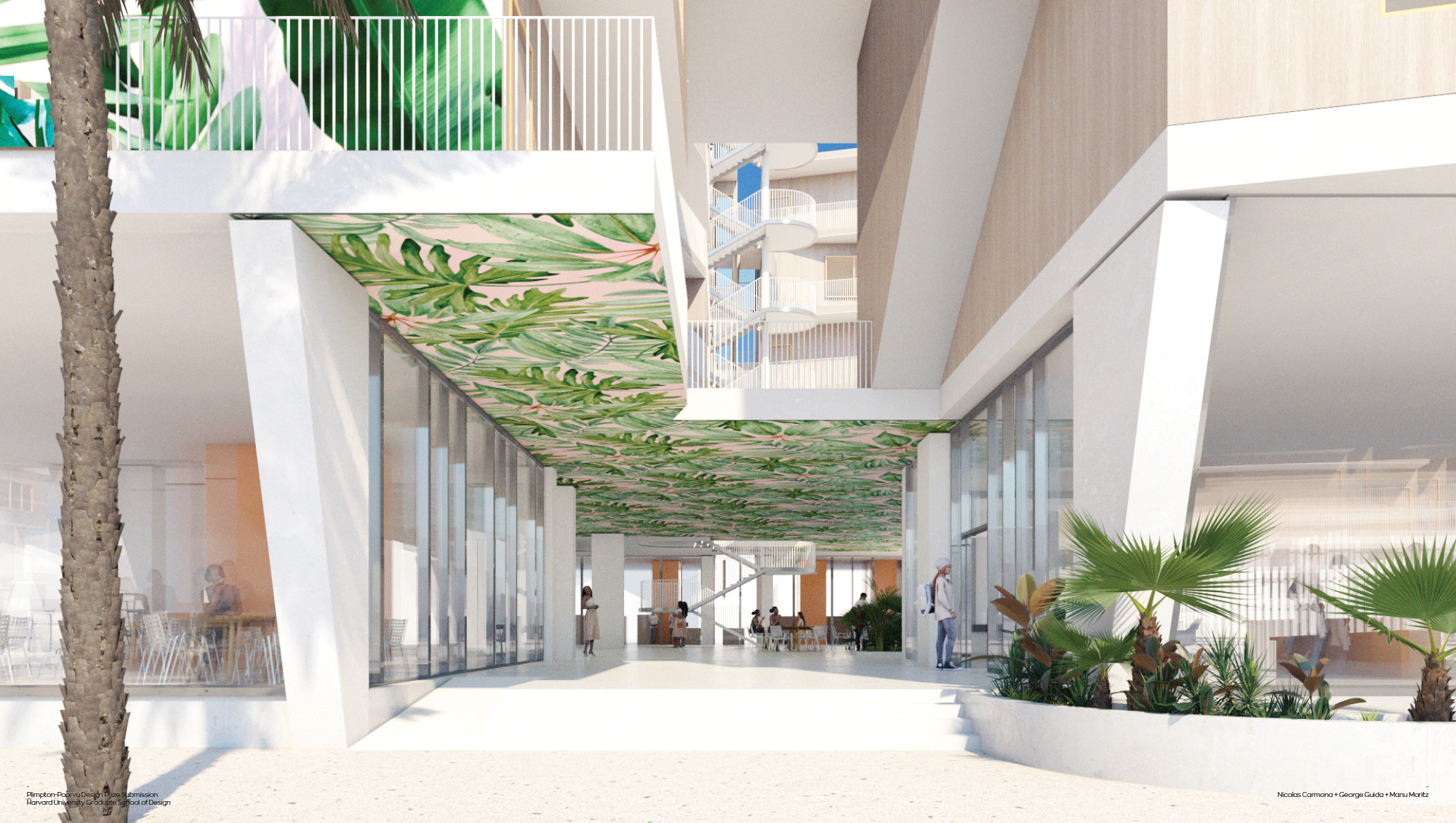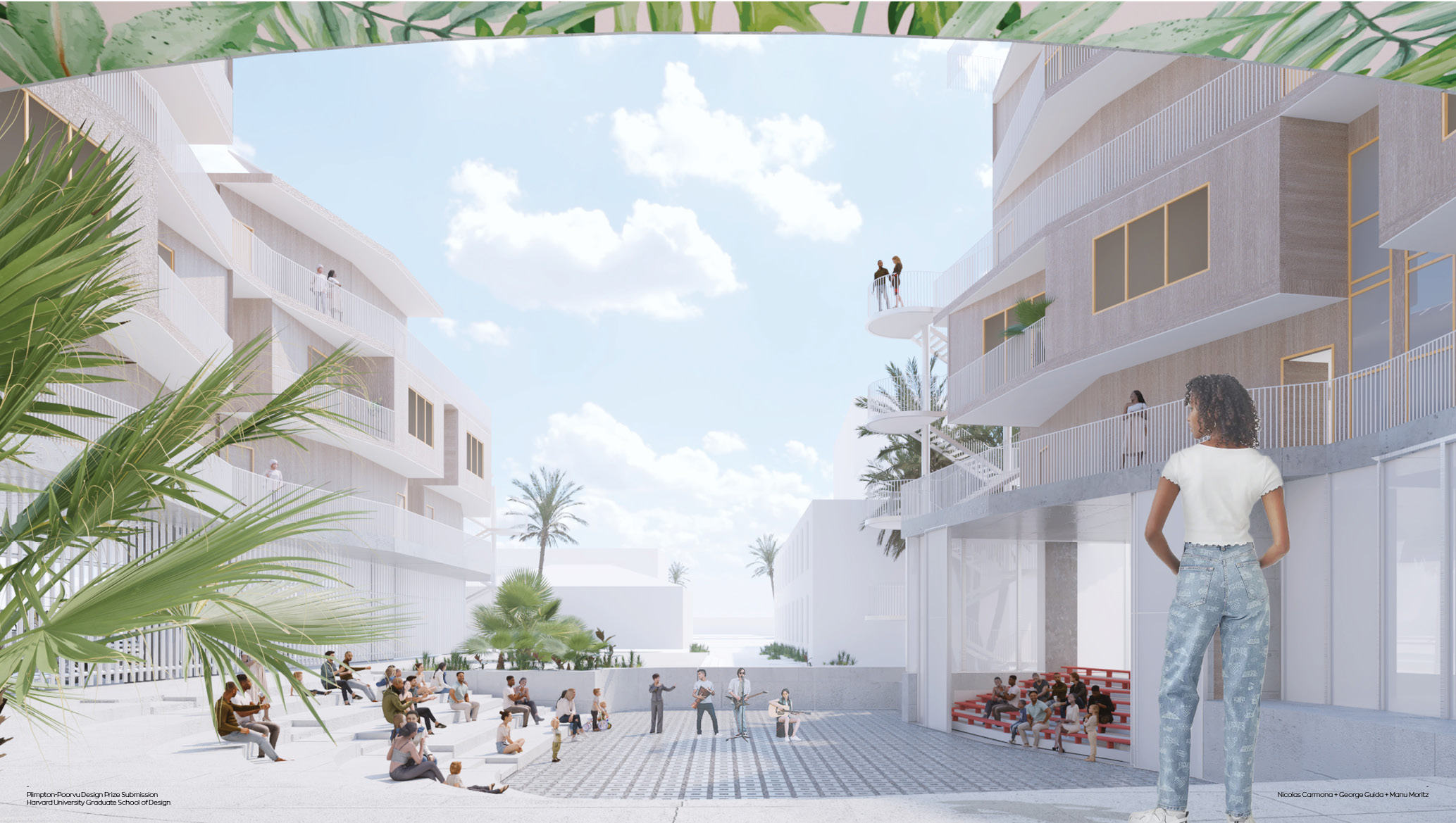2022 Plimpton-Poorvu Design Prize, Second Prize: “Miami Gateway”

by Nicolas Carmona (MArch II ’22), George Guida (MArch II ’22), and Manu Moritz (MDes ’22) — Recipients of the Plimpton-Poorvu Design Prize, Second Prize.
“Miami Gateway: Affordable Housing for Resilient Communities” proposes an interdisciplinary and intergovernmental plan in pursuit of housing security and climate resilience. Located in Miami, Florida, our project aims to leverage publicly owned vacant land to erect prefabricated cross-laminated timber dwelling units for residents living below the local area median income.
Consistently ranked as one of the fastest-growing cities in the United States, Miami is buoyed by steady population growth, short-term tourism, and foreign investment. Away from the beaches and glitzy waterfront skyscrapers, however, we are confronted with a startling reality: according to the Harvard Joint Center for Housing Studies, the Miami metro area has the highest percentage of households in the nation spending over half of their income on rent. The Miami Affordable Housing Framework additionally reports a chronic state of crisis, with “50% of all households cost-burdened as of 2018.” Further complicating the situation, Miami is existentially threatened by rising sea levels and increasingly stronger hurricane seasons. As is often the case, both affordable housing scarcity and the effects of climate change disproportionately affect minority populations.
Miami Gateway organizes around key investments outlined by the Miami Affordable Housing Framework to develop community-oriented programs, leverage housing innovation funds, and support new businesses while trying to fill the current deficit of 121,820 affordable units. This project is an exploration of the current American affordable housing landscape, which has tempered its civic ambitions through deference to “the market.” Can we develop inclusive, quality, affordable, and climate-sensitive housing as a public investment in our common future?


